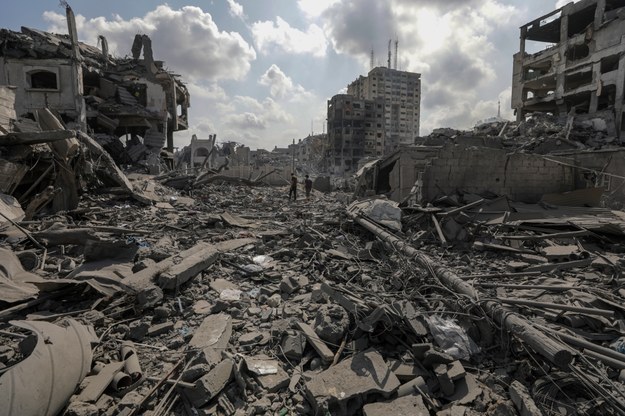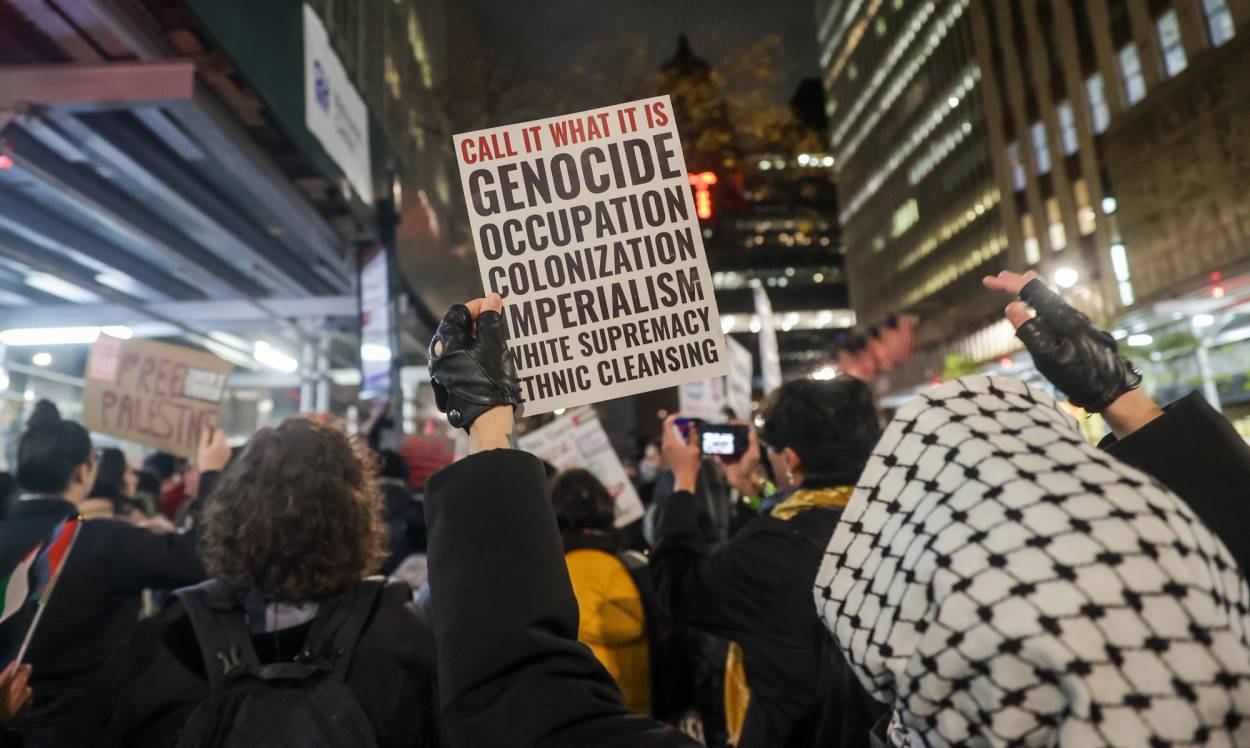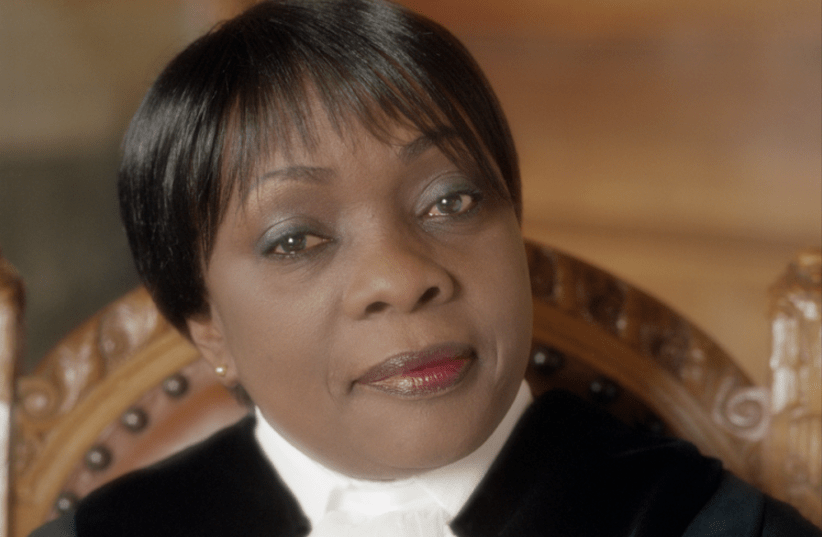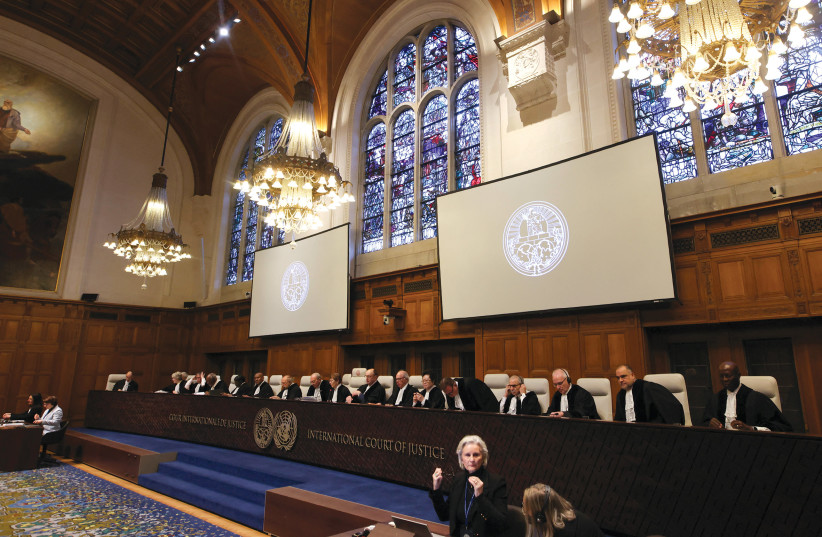 Niszczenia w Strefie Gazy po izraelskich nalotach/MOHAMMED SABER /PAP/EPA
Niszczenia w Strefie Gazy po izraelskich nalotach/MOHAMMED SABER /PAP/EPA
 Hamas zgadza się na rozejm, ale na własnych warunkach. Postulaty są nie do spełnienia
Hamas zgadza się na rozejm, ale na własnych warunkach. Postulaty są nie do spełnienia
Marta Urzędowska
Terroryści z Hamasu odpowiedzieli na ofertę rozejmu złożoną przez Izraelczyków za pośrednictwem amerykańskich i arabskich mediatorów. Poza wymianą izraelskich zakładników na palestyńskich więźniów domagają się wycofania izraelskich sił z Gazy, co dziś wydaje się nierealne.
Szczegóły oferty podaje Reuters. Porozumienie, które próbują wynegocjować Amerykanie, Katarczycy i Egipcjanie, to szansa na wstrzymanie walk w Strefie Gazy, gdzie od czterech miesięcy trwa krwawa wojna. Zaczęła się atakiem Hamasu na Izrael, w którym terroryści zabili 1,2 tys. osób, a 250 porwali do Gazy. W odpowiedzi izraelska armia prowadzi w enklawie naloty i inwazję lądową, w których zginęło ponad 27 tys. Palestyńczyków, w większości cywilów.
Izrael: Kilkudziesięciu zakładników nie żyje
Opisywane przez Reutersa porozumienie ma dać szansę na przerwanie walk i uwolnienie zakładników, którzy nadal pozostają w rękach palestyńskich terrorystów. Około połowy porwanych zwolniono w listopadzie, przy poprzednim zawieszeniu broni i wymianie zakładników na palestyńskich więźniów w izraelskich więzieniach.
W środę izraelskie władze poinformowały, że spośród 130 zakładników, którzy nadal pozostają w Gazie, co najmniej 30 nie żyje, choć nie podano, czy zginęli z rąk terrorystów, czy w izraelskich nalotach. Według niepotwierdzonych źródeł cytowanych przez „Guardiana” być może nie żyje też 20 kolejnych porwanych, co oznaczałoby, że do uwolnienia zamiast 130 osób pozostało ok. 80. Nie poinformowano, czy zabici zakładnicy to cywile, czy żołnierze.
Porozumienie, które dziś jest negocjowane z Hamasem, opracowane zostało przez Izrael, USA, Katar i Egipt i tydzień temu przekazane terrorystom, którzy jednak – jak podaje BBC – potrzebowali dłuższego czasu na zastanowienie, bo propozycje były „niejasne i mętne”.
Jak informuje stacja, umowa prawdopodobnie objęłaby sześciotygodniowe zawieszenie broni, podczas którego pewna liczba zakładników zostałaby wymieniona na więźniów. Jednak poza tym terroryści domagają się, by izraelskie siły w pełni wycofały się z Gazy.
Hamas domaga się też pomocy w odbudowie enklawy i pozwolenia mieszkańcom, których setki tysięcy uciekły przed wojną na południe enklawy, by wrócili do domu. Terroryści chcieliby też, by ranni w Gazie mieli zapewnioną możliwość przewiezienia ich do szpitali za granicą.
Postulaty Hamasu nie do spełnienia. Izrael nie wycofa się z enklawy
Choć Izrael i USA poinformowały, że przyglądają się odpowiedzi Hamasu i propozycjom terrorystów, jasne jest, że nie wszystkie postulaty będą mogły zostać spełnione. Amerykański prezydent Joe Biden nazwał propozycje Hamasu „nieco przesadzonymi”, co sugeruje, że Izraelczykom może być trudno spełnić te żądania.
Szczególnie trudny jest warunek wycofania izraelskiej armii z Gazy. Izrael od początku zapowiadał, że wojna w enklawie potrwa do czasu, gdy Hamas zostanie w pełni unicestwiony, a izraelski premier Beniamin Netanjahu jeszcze w ostatnich dniach przypominał, że izraelskie siły będą wojować do „ostatecznego, totalnego zwycięstwa”.
Izraelczycy na pewno nie odpuszczą też polowania na najważniejszych przywódców grupy, wśród nich na Jahję Sinwara, który osobiście zaplanował atak z 7 października i który ukrywa się w tunelach na południu Gazy – najpewniej w Chan Junus.
Jasne jest też, że nawet gdyby wojna miała się trwale zakończyć, izraelskie siły nie wycofają się w pełni, bo muszą pilnować bezpieczeństwa na miejscu. Choć Izraelczycy zapewniają, że nie chcą ponownej okupacji Strefy Gazy, jednocześnie podkreślają, że będą pilnować, by po pierwsze, Hamas już nigdy nie urósł w enklawie w siłę, a po drugie – by miejscowi terroryści już nigdy nie zagrozili państwu Izrael.
Blinken z Izraelczykami opracują odpowiedź dla Hamasu
Postulat Hamasu, by Izraelczycy całkowicie wycofali swoje wojska z Gazy, jest sprzeczny również ze stanowiskiem Ameryki – Waszyngton, choć apeluje do izraelskich sił, by skuteczniej chroniły palestyńskich cywilów, jednocześnie nie odmawia Izraelczykom prawa do walki i nie domaga się trwałego rozejmu.
W regionie przebywa amerykański sekretarz stanu Antony Blinken, który razem z Izraelczykami zastanawia się, jak zareagować na propozycję Hamasu. Amerykański dyplomata przyznał we wtorek w Katarze, że „nadal pozostaje wiele pracy do wykonania”. Jednocześnie dodał, że wierzy w szanse dogadania się co do wymiany zakładników na więźniów, choć przyznał, że osiągnięcie trwałego pokoju będzie wymagało od regionalnych przywódców „trudnych decyzji”.
Amerykanom zależy na rozejmie w Gazie, by uspokoić napięcia w całym regionie. Miejscowy konflikt rozlewa się bowiem także na inne kraje – sojusznicy Hamasu w Jemenie, Syrii, Iraku i Libanie również uderzają w interesy Izraela i USA, a ponieważ są wspierani przez Teheran, z każdym dniem rośnie ryzyko wciągnięcia Ameryki w dużą wojnę w regionie.
Hamas: Niech Ameryka zdecyduje, czy chce by ta wojna trwała
Terroryści nie tracą rezonu. Ważny przedstawiciel biura politycznego Hamasu, Muhammad Nazzal, w rozmowie z Al-Dżazirą przekonywał, że nie ustąpią choćby na jotę. Zapewniał, że – w porównaniu z przekazaną im propozycją Izraelczyków, ich własna wersja projektu porozumienia jest „bardziej szczegółowa” i zawiera „czasowe limity”. – Żaden z tych detali nie może być naruszony. Izraelska maszyna śmierci musi zostać zatrzymana, chcemy zobaczyć, jak izraelskie siły okupacyjne wycofują się całkowicie ze Strefy Gazy – wyliczał dodając, że „odpowiedź Hamasu jest realistyczna, a żądania – sensowne”.
Jednocześnie Nazzal pożalił się, że Izraelczycy „nie podchodzą do dealu poważnie”, ale zapewnił, że – jeśli rozejm wejdzie w życie – będzie go pilnować pięciu „gwarantów”: Katar, Egipt, Turcja, Rosja i ONZ. – Spodziewamy się, że ruszą negocjacje. A kiedy już się rozpoczną, wszelkie przeszkody da się ominąć, trzeba tylko dograć szczegóły – dodał.
Na pytanie Al-Dżaziry co sądzi o wypowiedzi Bidena, że terroryści swoimi postulatami przeholowali, stwierdził, że „nie spodziewał się po amerykańskim prezydencie niczego lepszego”. – Jest całkowicie uprzedzony, jest zaangażowany w wojnę w Gazie, daje Izraelczykom polityczne i prawne wsparcie i popiera wszystko, co robi Netanjahu – wyliczał. – Oczekujemy od administracji USA ostatecznej decyzji: Chcą, żeby ta wojna była kontynuowana, czy chcą trwałego rozejmu? – dodał.
Zawartość publikowanych artykułów i materiałów nie reprezentuje poglądów ani opinii Reunion’68,
ani też webmastera Blogu Reunion’68, chyba ze jest to wyraźnie zaznaczone.
Twoje uwagi, linki, własne artykuły lub wiadomości prześlij na adres:
webmaster@reunion68.com





